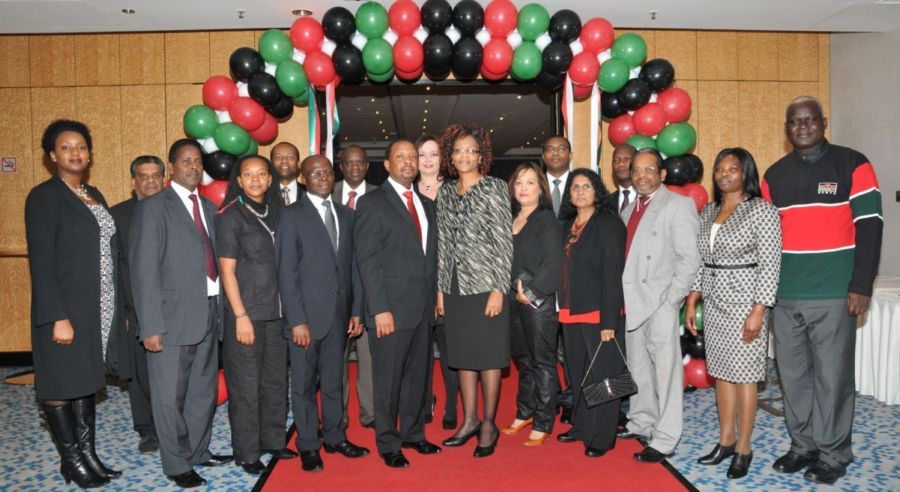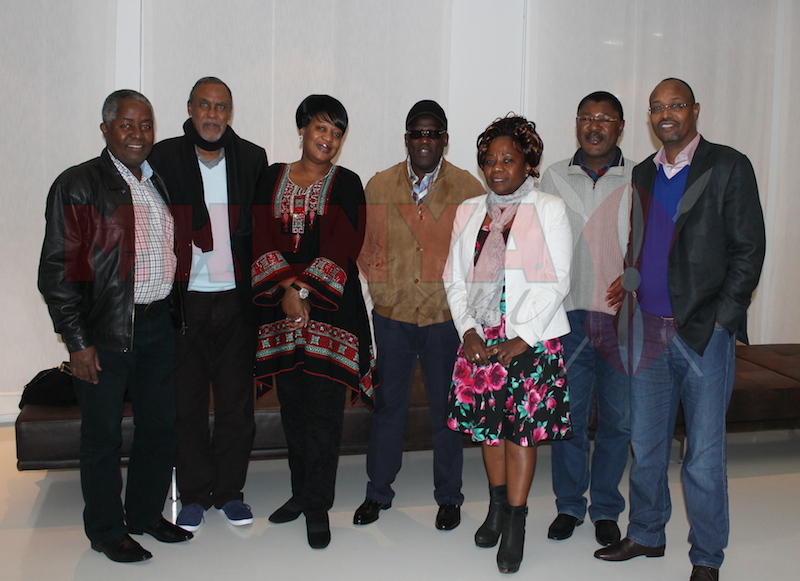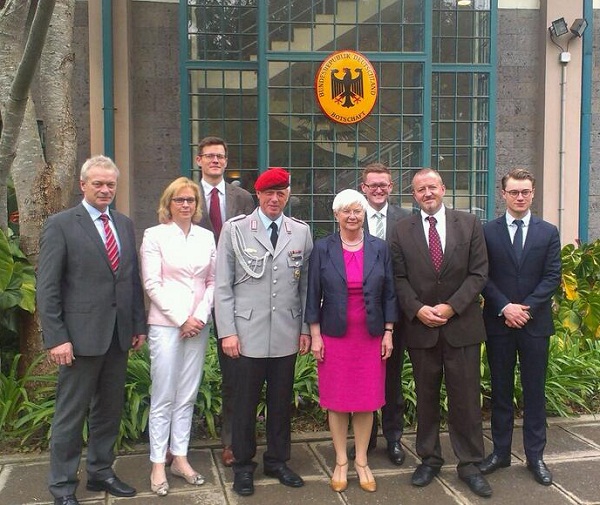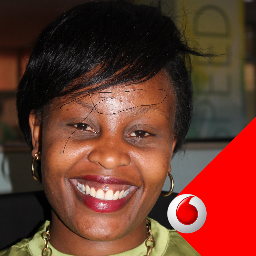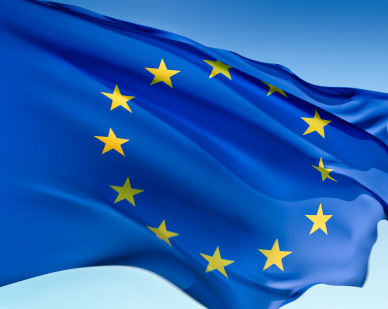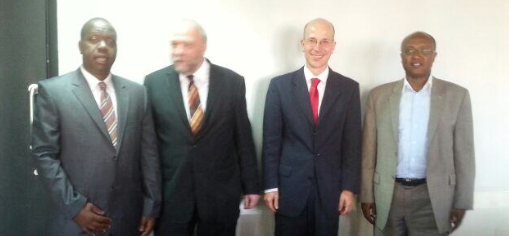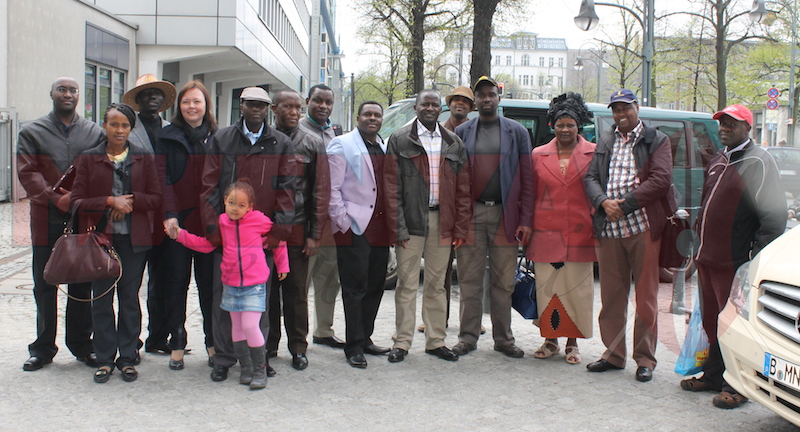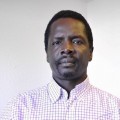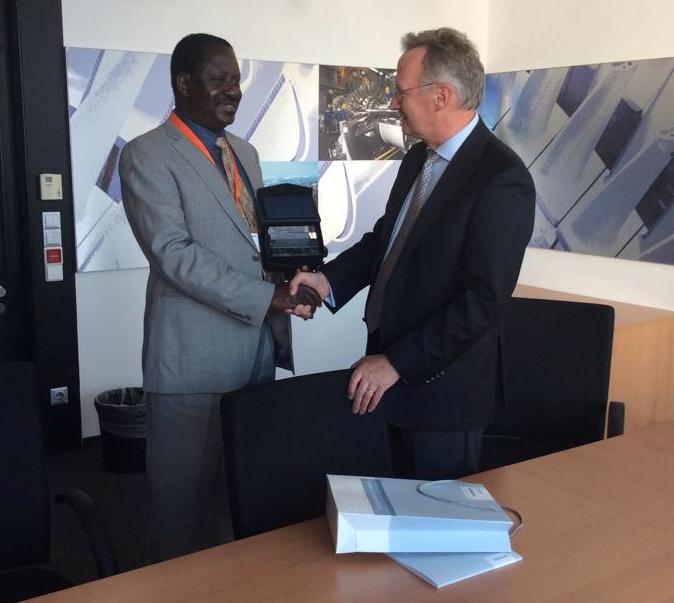
Former Prime Minister, Raila Amolo Odinga was in Berlin this past week.
Accompanied by the Mombasa Senator, Omar Hassan; Mombasa Governor, Ali Hassan Joho and Busia Govenor, Sospeter Odeke Ojaamong; they were key speakers at the Afrika Verein Event on Tuesday afternoon. This was followed by meetings with officials of the BMZ, Auswärtiges Amt, Friedrich Ebert Stiftung and a visit to Siemens.
Mr Odinga, how would you describe the current political climate in Kenya?
Raila Odinga: I would say generally stable apart from the issue of referendum and security. The security situation in the country is worrying, particularly because of the threats from al-Shabab and the international terrorism. The economic situation is a little bit difficult, the inflation rate is high, the cost of living is also high for the people in the country. But generally I would say the situation is stable.
You mentioned security in the country. Just one year ago al-Shabab attacked the Westgate shopping mall in Nairobi, videos showed the security forces looting the mall and up to now nobody is taking responsibility. What’s your take on that?
It’s very unfortunate that to date Kenyans don‘t know who was responsible for the Westgate mall attack. When the incident took place we came together, both government and the opposition, to mobilize the people in face of this threat to national security. We urged that investigations be carried out, the president promised investigations; unfortunately later on he recanted and refused to set up a judicial commission of inquiry. So the question is still out there: Who were they? How was it organized and how was it handled? These are very fundamental issues and we are still begging for answers.
You have been spearheading a referendum to change parts of the four-year-old constitution, collecting already more than one million signatures, but you yourself played an important role in amending the current constitution. What is it that you want to change and why do you think there is a need for its amendment now?
Well, let me take you back to the American constitution, which is a remarkable constitution. It was amended within six months of being promulgated. The same thing happened to the French constitution. So it is not a question of longevity of implementation of the constitution that’s at issue. It is whether there are flaws which require attention, and the answer is yes, there are. Particularly with regard to the devolution chapter. The devolution chapter is a cause of concern, how wealth is shared, how revenue is shared between the national and the county government. We want a clear formula which is not vague like it is right now. Right now it is saying that it is a minimum of 15 percent, but does not fix the maximum. We want to ensure that between 40 and 45 percent of the revenue goes to the county government and the rest remains for the national government. The other is the issue of ethnic inclusivity of our constitution, and yet another one is to protect the property rights, particularly the land issue, to reinforce the position of the National Land Commission in the constitution. And then the other one is wealth sharing, that is things like minerals and other things like wildlife and so on which are found in the counties, how are these dealt with in the constitution? How do we share the wealth between the county government and the national government?
Is your call for an amendment of the constitution realistic, regarding the fact that one of your demands is the disbandment of the IEBC, the Independent Electoral and Boundary Commission, despite the fact that this same commission would be responsible for this process and to handle the referendum?
We are basically talking about the overhaul of the electoral infrastructure in the country, not just the disbandment of the Electoral Commission. We are basically addressing other institutions of governance in the country. We think that these commissions are too big, too bloated. So we are saying, we want to reduce the size from 9 or 11 to 5 members. Secondly, they should not be permanently employed. There should be like a board of directors who are presiding over an executive led by the chief executive and they are part-time, they only get sitting allowances when they meet, and then in terms of appointments we want them to be appointed by political parties rather than the way they are being appointed at the moment. So the Electoral Commission would preside over the process. But we will insist on an independent supervision, so that they are supervised by an independent authority.
Some critics say this referendum is only a means to assume power through the backdoor. What is your response to such allegations?
That thing couldn’t be further from the truth. We don’t need a referendum to assume political power. As you know we said that we don’t agree with the ruling of the supreme court. We went to the Supreme Court to challenge the outcome of the last presidential elections. When the Supreme Court dismissed our 900-page evidence document and then went on to dismiss our petition, we said that we disagree but we respect the Supreme Court ruling, and as far as we are concerned we moved on, forgot about the last elections. We will deal with the elections when the time comes but that does not mean that we do not rectify whatever we see is wrong with the current constitution ahead of the next general elections. We don’t want Kenyans to go back to the ballot and face a similar fate like what happened last time.
Are you not concerned that this referendum could ignite violence in Kenya again?
I don’t think so. Kenyans are very mature. Kenyans can disagree on the basis of ideas without resorting to any kind of violence. These referendums are held here in Europe almost everywhere, every year there is some kind of referendum being held. Just tomorrow [18.09.2014] there will be one in Scotland to decide whether they want to be part of Britain or not. Thereafter, in another year or so, Britain itself is going to do a referendum to decide whether they want to remain in the EU or pull out. In Switzerland there is a referendum almost every time they want to make a major decision. The other time there was one in Holland, in France and so on; so why should there be violence in Kenya if there is a referendum? I don’t think so. I think that the time has come for Kenyan people to participate in major decision-making in their country.
Do you have the full support of your CORD alliance for the referendum?
Certainly, yes, my Deputy Kalonzo Musyoka is very much with me and Moses Wetangula and the rest. But then I must also admit that there are some members of parliament who are opposed to the referendum and we are saying that is their democratic right to oppose. We have not threatened them with the expulsion from the parties unlike our counterparts, the Jubilee Coalition, who have threatened their governors who are supporting the referendum. Unless they resign, they’d be expelled from their party. We are saying that this is retrogressive. You should really want people to make decisions on the basis of their conscience rather than though coercion, threat and intimidation.
Turning to another topic, you are demanding the withdrawal of Kenyan troops from Somalia. What else should be done?
We are not really calling for a withdrawal of the Kenyan troops from Somalia per se. We are saying that we need to have a clear timetable of our engagement in Somalia. We have been there now for two years and I think we have done a good job. Our troops have done a commendable job. But as you know it was passed at the AU [African Union] that countries sharing a common border with a neighboring country should not send their troops into that country because of the possibility of retaliatory attacks. That is the reason why we never had our troops in Somalia until when the al-Shabab incursions had increased sufficiently. That’s when we called it Operation Linda Inchi. That is to defend or protect the country. And it was meant to be for a limited period of time as we helped the Somalis themselves to develop the capacity to take over the responsibility for protecting their own country. So what we need to do is to carry on the training of the Somalis and hand over the responsibility to them gradually. That’s why we demanded a clear timetable from the government, how Kenya should be disengaged from the conflict in Somalia – the same way the Americans did in Iraq and also in Afghanistan. So most people are demanding this. Some of them want the government to be more transparent and accountable about the cost of this war to the Kenyan public, particularly in terms of loss of lives. When they see coffins coming back from Somalia [people want] clear accountability. They also [feel] commiseration [for] the victims who have been killed in Somalia. We are demanding a more open and transparent administration of the war in Somalia.
Mr Odinga, let’s turn to the political alliance between your ODM (Orange Democratic Movement) party and the Wiper Democratic Movement, headed by former Vice President Kalonzo Musyoka, under what is known as CORD. How solid is your political marriage?
I would say our political discourse is very solid because we share a number of things in common as a coalition. We had a pre-election pact which was aimed at winning the elections and then forming a coalition government. When that did not happen, we subsequently signed a post-election pact to remain together in parliament as one coalition with one leadership in both houses of parliament , National Assembly and the Senate. And then I and my colleague, the Honorable Stephen Kalonzo Musyoka, are leading the opposition from outside parliament, and this arrangement is working very fine. We have kept the party very active outside parliament as it should be and our team in parliament is equally very effective doing the work that should be done in a multi-party democracy.
Is CORD to contest the next election as a unified force again, and who will be the presidential candidate? You, Mr Odinga, or Kalonzo Musyoka?
Well, we will contest the next election, there is no doubt about that. We want to remain a very strong and unified team facing the next elections. We have been through a very difficult terrain where, for example, the ruling party has tried to marginalize the opposition, and tried to coerce and bribe some of our members in parliament to oppose the coalition’s positions. We have learned the hard way, through experience. I think we are well tested as to what will happen towards elections. Of course we will review and agree, because as you know in coalitions there are always negotiations among coalition partners. So I don’t want to enter the discussion of who is going to be the candidate in the next elections. We will cross that bridge when we reach it.
My last question: The International Criminal Court in The Hague might drop the upcoming trial of President Kenyatta because the prosecutor Fatou Bensouda may not have enough evidence. How do you see this?
Well, as you know, the case is only prosecuted on the basis of evidence. So if there is no evidence, then of course there is no case. You cannot prosecute anybody if you don’t have sufficient evidence. That is our position. So there’s really not much to add to that story.
Raila Odinga came second in Kenya’s 2013 presidential elections, losing to Uhuru Kenyatta. He is at the forefront of a campaign for a referendum to change parts of the country’s constitution


